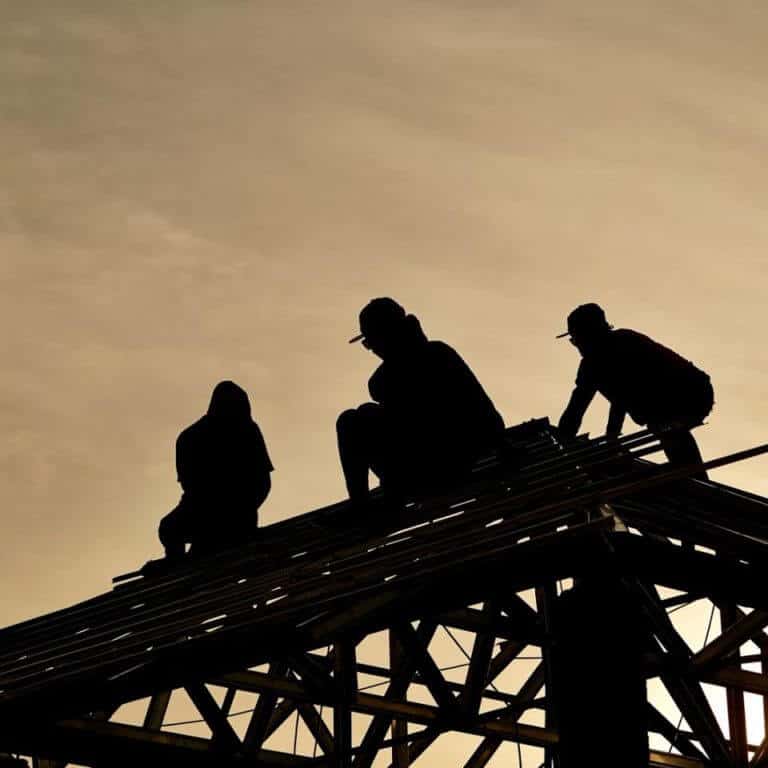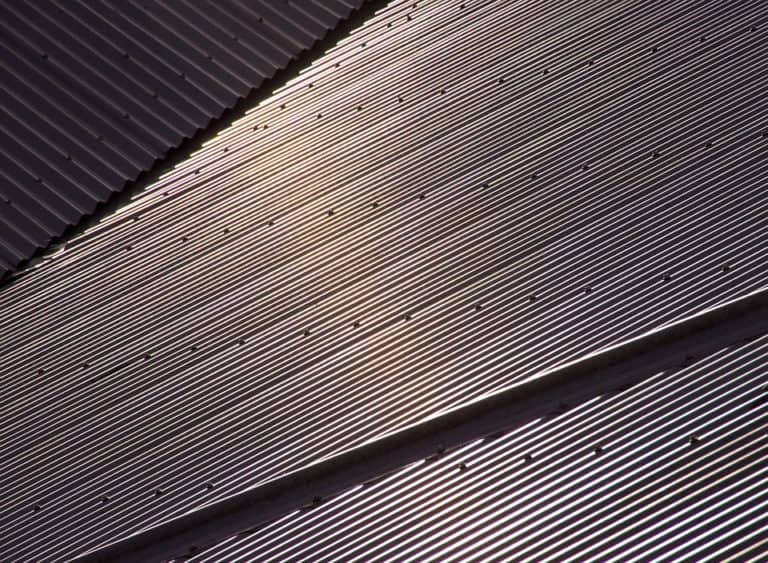Frequently Asked Questions
Can a Wi-Fi router be installed on a metal roof?
Metal roofs can interfere with Wi-Fi signals due to their conductive properties. Installing a Wi-Fi router on a metal roof may reduce the signal strength and coverage area. It is recommended to position the router away from the metal roof or use a signal booster to improve performance.
Does a metal roof affect Wi-Fi signal strength?
Metal roofs can interfere with Wi-Fi signal strength due to the conductive nature of metal, which can block or reflect wireless signals. This can result in poor Wi-Fi coverage and connectivity issues within the home. Installing a Wi-Fi extender or access point may help improve the signal.
Can trees near metal roofs affect cell phone signal strength?
Yes, trees near metal roofs can interfere with cell phone signal strength. Materials like metal, wood, fiberglass insulation, and thick foliage can all negatively impact cell reception by blocking or disrupting the signal.
Do metal roofs in urban areas affect cell phone reception more?
Yes, metal roofs can interfere with cell phone reception in urban areas due to the reflective nature of metal, which can block or distort cellular signals. Other factors like nearby buildings and infrastructure can also contribute to poor reception.
Is metal roof cell phone reception affected by thickness?
Yes, metal roofs can interfere with cell phone reception due to the conductive properties of metal. The thickness of the metal used in the roof can impact the level of interference, with thicker metal typically causing more signal disruption.
Does metal roofing material reduce cell phone signal strength?
Yes, metal roofing can interfere with cell phone reception due to the conductive properties of the material. Metal acts as a barrier, blocking and reflecting radio waves from reaching the phone. This can result in weaker signal strength and potential coverage issues inside the home.
Can you use a signal booster with a metal roof?
Yes, signal boosters can be used to improve cell phone reception in homes with metal roofs. Signal boosters amplify the existing cell signal, compensating for the signal-blocking properties of metal roofing materials.
How much does metal roofing impact cell signal quality?
Metal roofing can impact cell signal quality by reflecting and blocking radio waves. The type and thickness of metal used, as well as the home's layout and proximity to cell towers, all influence the extent of signal interference.
Will Wi-Fi routers work near a metal roof?
Metal roofs can interfere with Wi-Fi signals due to their conductive nature, which can block or reflect the radio waves. However, the impact varies depending on the roof's installation, thickness, and proximity to the Wi-Fi router. Proper placement of the router and using signal boosters may help mitigate the issue.
How does metal roof thickness affect Wi-Fi signals?
The thickness of a metal roof can impact Wi-Fi signals. Thicker metal roofs can block and reflect wireless signals, reducing connectivity and coverage within the home. Thinner metal roofs tend to have less interference with Wi-Fi compared to thicker ones.
Can a metal roof make Wi-Fi signals unstable?
Yes, metal roofs can interfere with Wi-Fi signals due to their reflective nature, which can cause signal interference and reduce coverage. The metal material can block or distort the wireless radio waves, leading to an unstable Wi-Fi connection.
How close to the metal roof does the cell signal degrade?
The proximity of the metal roof to the cell phone signal can significantly impact the signal quality. As the distance between the metal roof and the cell tower decreases, the signal degradation typically increases. The metal roof can reflect, absorb, or block the signal, leading to weaker coverage within the building.
How to boost Wi-Fi signal through a metal roof?
Use a Wi-Fi booster or extender to amplify the signal, position the router away from the metal roof, and consider installing a mesh network system for better coverage throughout the home.
Can a metal roof affect Wi-Fi signal strength too?
Yes, metal roofs can interfere with Wi-Fi signal strength due to their ability to block and reflect radio waves. This can lead to poor Wi-Fi coverage, especially in areas directly under the metal roof. Strategies to improve Wi-Fi include using wireless extenders or relocating the router.
Do metal roofs have different effects on different carriers?
Yes, metal roofs can have varying effects on cell phone signals depending on the carrier's frequency and network infrastructure. The interference can differ for each wireless provider.
Can metal roofing material be coated for better reception?
Yes, metal roofs can be coated with specialized materials to improve cell phone signal reception. Coatings like copper or silver can help reduce interference from the metal roof.
Can a metal roof be designed for better cell phone reception?
Yes, metal roofs can be designed for better cell phone reception. This can be achieved by using materials that are transparent to radio frequency signals, such as fiberglass or wire mesh, within the metal roofing system.
Can I get Wi-Fi signal through a metal roof?
Metal roofs can interfere with Wi-Fi signal reception due to their reflective properties. The metal material can block or weaken the wireless signal, potentially reducing connectivity. Strategies like installing a Wi-Fi extender or access point may help improve the signal through a metal roof.
Can metal roofing be installed to minimize cell signal loss?
Yes, metal roofs can interfere with cell phone reception, but there are ways to mitigate the issue. Installing cell phone signal boosters or choosing metal roof materials designed to minimize interference can help maintain strong cell coverage.
Can I use Wi-Fi mesh network with a metal roof?
Yes, a metal roof can interfere with Wi-Fi signal strength and coverage, but a mesh network can help overcome this challenge. The mesh nodes can be strategically placed to bypass the metal roof and provide consistent wireless connectivity throughout the home.
Are there any federal regulations on metal roofs and cell signals?
Yes, metal roofs can interfere with cell phone reception due to their reflective nature, which can block or distort signals. However, there are no federal regulations specifically addressing this issue.
Do metal roofs affect cell phone signal strength indoors?
Yes, metal roofs can interfere with cell phone reception due to their reflective properties. Metal is a conductive material that can block and reflect radio frequency signals, resulting in poor indoor coverage. The extent of the impact depends on factors like the roof's thickness, the building's layout, and the proximity to cell towers.
How to improve cell phone reception with a metal roof?
To improve cell phone reception with a metal roof, consider installing a cell phone signal booster. Boosters amplify the existing signal, compensating for interference from the metal roof. Placement and installation are important for optimal performance.
Can metal roof insulation reduce cell phone interference?
Yes, metal roofs can interfere with cell phone reception due to the conductive nature of the metal material. However, proper insulation between the metal roof and the interior space can help reduce this interference.
Can a metal roof block Wi-Fi signals completely?
Metal roofs can interfere with Wi-Fi signals due to their reflective properties. However, they do not completely block the signals. The level of interference depends on factors like roof thickness, building layout, and router placement.
Can metal roofing material block cell phone signals?
Yes, metal roofing materials can interfere with cell phone signals due to their reflective nature. Metal roofs can block the direct line of sight between a cell tower and a mobile device, resulting in poor reception and connectivity issues.
Are there any cell phone carriers that offer metal roof solutions?
There is no information provided to suggest any cell phone carriers offer specific solutions for metal roofs. Cell phone signal interference can occur with metal roofs, but general cellular boosters are available to help improve coverage in such situations.
Do all types of metal roofs interfere with cell signals?
No, not all metal roofs interfere with cell phone signals. The level of interference depends on factors like the type of metal, roof design, location, and proximity to cell towers. Some metal roofs may cause minimal or no interference.
Do metal roofs in rural areas affect cell phone reception less?
Metal roofs can interfere with cell phone reception due to the metal's ability to block or reflect signals. However, the level of interference may be less in rural areas where there are fewer obstructions and cell towers are more spread out.
Are there metal roof materials that dont affect cell signals?
Yes, some metal roof materials like aluminum or stainless steel have less impact on cell phone signals compared to other metal roofs. The thickness and type of metal used can influence signal interference.
Can you get cell phone service with a metal roof?
Yes, cell phone service can be affected by metal roofs. Metal roofs can interfere with cell phone signals due to their reflective properties. Factors such as proximity to cell towers, network traffic, and other building materials can also impact cell service with a metal roof.
How much does a metal roof interfere with Wi-Fi?
Metal roofs can interfere with Wi-Fi signals due to their reflective properties, which can cause signal interference and dead spots. The extent of interference depends on factors like roof design, building materials, and Wi-Fi router placement.
Are there any cell phone signal solutions for metal roofs?
Yes, metal roofs can interfere with cell phone reception. Solutions include using a cell phone signal booster, which can boost the signal by up to 32%.
How does a metal roof impact cell phone reception quality?
Metal roofs can interfere with cell phone reception due to the conductive nature of metal, which can block or reflect signals. This can result in poor coverage, dropped calls, and slow data speeds. Factors like building materials, location, and carrier can also impact reception.
Do metal roofs cause dropped calls and poor reception?
Yes, metal roofs can interfere with cell phone reception due to the conductive properties of metal, which can block and reflect radio signals. Factors like the thickness of the metal, the distance from cell towers, and surrounding obstructions can impact the degree of interference.
Can metal roof vents block Wi-Fi signals?
Yes, metal roof vents can potentially block or interfere with Wi-Fi signals due to their conductive nature and ability to reflect radio waves. The proximity and orientation of the vents relative to the Wi-Fi router and devices can impact the signal strength and coverage within the home.
Will a metal roof reduce Wi-Fi signal quality?
Yes, metal roofs can interfere with Wi-Fi signals due to their reflective properties. Metal reflects and absorbs radio waves, which can weaken or disrupt wireless signals in the home. Installing a Wi-Fi extender or booster may help improve coverage.
Do all metal roofs affect cell phone reception equally?
No, not all metal roofs affect cell phone reception equally. The impact depends on factors like the type of metal, thickness, coating, and the location and proximity to cell towers. The level of interference can vary.
How to test cell phone reception with a metal roof?
To test cell phone reception with a metal roof:
Stand in different areas of the home, including near windows and exterior walls.
Check signal strength and call quality.
Consider using a cell phone signal booster to improve reception in areas with weak signals.
Can metal roof coating improve cell phone signal quality?
While metal roofs can interfere with cell phone reception due to their conductive nature, metal roof coatings are typically not thick or dense enough to significantly impact signal quality. However, other factors like location, cell tower proximity, and building materials may still affect reception.
Will metal roofing affect 5G cell phone reception?
Yes, metal roofing can potentially interfere with 5G cell phone reception due to the conductive nature of metal. The metallic surface can block or reflect the high-frequency 5G signals, resulting in reduced signal strength and coverage inside the building.
Are metal roofs the cause of poor cell phone reception?
Metal roofs can interfere with cell phone reception due to the material's ability to block and reflect cellular signals. Factors like the home's location, proximity to cell towers, and other obstructions also impact reception.
Do metal roofing materials affect Wi-Fi differently?
Metal roofing materials can affect Wi-Fi signals due to their ability to reflect and block radio waves. This can result in weaker Wi-Fi coverage and connectivity issues compared to other roofing materials.
Do metal roofs interfere with Wi-Fi signals too?
Yes, metal roofs can potentially interfere with Wi-Fi signals due to the reflective nature of metal. The metal surface can reflect and scatter the wireless signals, reducing the signal strength and coverage inside the building.
Are there metal roofs that dont affect cell phone reception?
Yes, some metal roofs do not significantly affect cell phone reception. Factors like roof coating type, tower proximity, and local interference can impact the degree of interference. Metal roofs with special coatings or designs may minimize signal disruption.
How to boost cell phone signal with a metal roof?
To boost cell phone signal with a metal roof, consider installing a cell phone signal booster. Cell phone boosters can amplify the existing signal and improve coverage in areas affected by metal roofing materials.
Can a Wi-Fi extender help with metal roof interference?
Yes, a Wi-Fi extender can help improve signal strength and reduce interference caused by a metal roof. The extender can be placed in a location that bypasses the metal roof obstruction, providing better Wi-Fi coverage throughout the home.
Do metal roofs interfere with cellular signals?
Metal roofs can interfere with cell phone reception due to their conductive properties. The metal reflects and blocks cellular signals, leading to poor coverage in the area. To improve reception, cell phone boosters or alternative installation methods may be necessary.
Do metal roofs block GPS signals as well?
Metal roofs can potentially interfere with GPS signals due to the conductive nature of metal, which can block or reflect the satellite signals. However, the degree of interference depends on factors like roof thickness and design.
Will a metal roof affect Wi-Fi signal latency?
Yes, metal roofs can interfere with Wi-Fi signals due to their reflective properties. The metal can block, reflect, or absorb wireless signals, potentially causing latency or dead spots in Wi-Fi coverage. Proper router placement and signal boosters may be needed to mitigate these effects.
Can a metal roof cause dropped cell phone calls?
Yes, metal roofs can interfere with cell phone reception due to their conductive properties, which can block or reflect cell signals. This can result in dropped calls or poor coverage inside the building.
Do metal roof coatings affect Wi-Fi signal quality?
Metal roofs can interfere with Wi-Fi signals due to their conductive nature. The metal reflects and absorbs wireless signals, potentially reducing signal strength and quality within the building. Metallic roof coatings can have a similar effect.
Will a metal roof cause Wi-Fi dead zones?
Metal roofs can potentially create Wi-Fi dead zones due to the reflective nature of the material, which can interfere with wireless signals. The extent of the impact depends on the roof's construction, the home's layout, and the position of the wireless access points.
Do metal roofs absorb Wi-Fi signals?
Metal roofs can interfere with Wi-Fi signals due to their reflective nature. The metal surface reflects and blocks wireless signals, which can reduce connectivity and coverage within a home. Using a Wi-Fi extender or relocating the router may help improve the signal.
Can a metal roof affect emergency response signal?
Yes, metal roofs can interfere with cell phone and emergency response signals due to the reflective nature of metal, which can block or weaken the transmission of radio frequencies. The degree of interference depends on factors like roof thickness, cell tower proximity, and obstructions.
Is metal roof interference different for 5G Wi-Fi?
Yes, metal roofs can potentially interfere with 5G Wi-Fi signals more than previous wireless generations. The higher frequency 5G signals are more susceptible to interference from metal and other building materials.
Does a metal roof affect cell phone reception inside a building?
Yes, metal roofs can interfere with cell phone reception due to the reflective properties of metal. The metal can block or deflect cellular signals, leading to poor reception inside the building.
Can metal roof interference be reduced with shielding?
Yes, metal roof interference can be reduced through shielding. Shielding materials like conductive paints, foils, or metal meshes can be applied to the roof to help block electromagnetic signals, improving cell phone reception.
Can metal roofs block cell phone reception completely?
Metal roofs can interfere with cell phone reception, but they do not completely block the signal. The extent of interference depends on factors like building materials, distance from cell towers, and network traffic. Cell phone boosters can help improve reception in areas with metal roofs.
Unable to complete request?
I'm sorry, but I don't have enough information to provide a response without any context. Could you please rephrase your question or provide more details so I can try to assist you?






